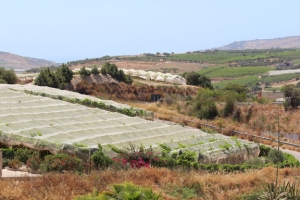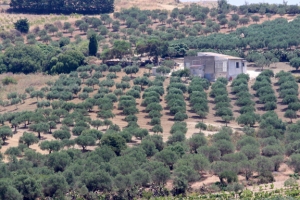Agriculture News
WKU geography team investigates agritourism changes in Sicily
- Wednesday, July 23rd, 2014
A team of researchers from WKU’s Department of Geography and Geology spent a week in southern Sicily at the beginning of July to investigate changes in the agritourism landscape.
Led by Associate Professor of Geography Dr. Peggy Gripshover, and accompanied by Dr. Thomas Bell (adjunct Professor of Geography), University Distinguished Professor of Geography Dr. David Keeling, Mammoth Cave National Park Senior Ranger Chuck Decroix, Geography and Geology Office Manager Wendy Decroix (studying agritourism as part of an independent study abroad course), and WKU-Navitas instructor DJ Urquhart, the group explored recent socio-economic changes in local landscapes, resources, culture and the environment.
The group stayed at a working olive plantation in order to gain first-hand experience of the olive-oil production and marketing process, and to understand more clearly the strategies engaged in rebranding the regional terroir (a French term for the geography, geology and climate characteristics that influence the production of agricultural products).
Sicily has long struggled as a regional economic backwater of Italy, with the landscape littered with abandoned farm buildings and constrained by limited transportation infrastructure to move people and goods around. Well-known for its famous Hellenic, Roman and Arabic cultural infrastructure, as well as for one of the world’s more active volcanoes, Mt. Etna, Sicily has significant potential for agritourism development, but requires significantly more infrastructural investment than it currently receives. The group aims to present its findings at the upcoming Conference of Southeastern Geographers and to publish the results in a peer-reviewed journal.
Contact: David Keeling, (270) 745-4555.



